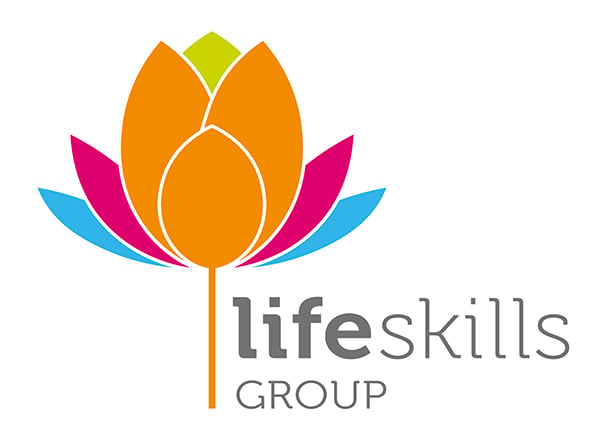What have we learned from the pandemic? How will it change our current education practice and climate?
Schools are in a unique position following the lockdowns in 2020 and the ongoing challenges that the pandemic presents. For the first time in the education industry, we can track the impact of loneliness in children when they are not able to attend school. We can see the crucial role that school plays in the development of developing social skills and belonging.
There is a clear pathway established that applies the explicit teaching of social skills through evidence based practises in social and emotional learning in order to intervene and bolster student wellbeing at a very young age. We know that school belonging mediates and bolsters social and emotional skills that set children up for life.
Based on research and experience, we know that a sense of belonging has been a fundamental human need. Data suggests that in an educational setting belonging is a concept associated with school engagement, student academic success, positive mental health, and a range of socio-emotional outcomes. It seems now more than ever, schools need the application of student wellbeing approaches and interventions to support a belonging culture in schools.
What we often see from traditional educational models is a lack of connection which impacts academic performance, health and engagement. And while there is a move particularly in Australia to focus on the links between learning and wellbeing, there has not been a lot of research into how school culture and belonging are impacted and equally impact on student’s social emotional learning.
Where students are building positive relationships with both student and educational staff, they will build a sense of belonging within the school community. Students need to be explicitly trained in social emotional competencies such as social, emotional and cognitive management skills such as friendly communication, anger management and problem solving skills.
We know that belonging is an essential ingredient in building a successful learning experience for a child. Schools must focus on student connection, and particularly teacher - student relationships in order to make an impact on student belonging. In order to do this teachers need to know their students well. This needs to be explicitly linked to social and emotional wellbeing programs to ensure students are engaged in their own wellbeing. This also gives teachers an opportunity to understand each student's individual social and emotional needs.
In terms of psychosocial outcomes, school belonging is associated with high levels of happiness, psychological function, adjustment, self esteem, and self esteem. Belonging is essential to build psychological and cognitive functioning. Schools offer a unique opportunity to apply a range of interventions to build social skills that in turn bolster student belonging. Areas of key application should be in building positive relationships, improving student-teacher relationships and providing more student voice opportunities.
In recent years, wellbeing programs have increased in popularity within schools due to the research linking wellbeing and social skills with increased student success. By understanding school belonging and its link to social skills, school leaders and teachers are able to make thoughtful decisions about how to intervene to build a school culture that bolsters belonging.
Theories from Maslow, Adler and Glasser theories show the importance of belonging to student success and learning. At Life Skills Group, this knowledge has led us to build the capacity to collect data that supports the connection between students and teachers, while providing individualised social emotional programs that allow teachers to gauge student wellbeing at any given time throughout the day.
Consult an Education Advisor
Want to learn more about how to implement these best practices in teaching and measuring wellbeing in learning support? Book a FREE wellbeing consultation with us today!
Additional Resources
- 2 Minute Video: How Guildford West uses Life Skills GO Weather Report to track student wellbeing
- Teaching and Measuring Whole-school Wellbeing Guide
- NSW - Guildford West Case Study in using Life Skills GO
- VIC - Oakleigh South Case Study in using Life Skills GO
References
Allen, K., Kern, M.L., Vella-Brodrick, D., Hattie, J., & Waters, L. (2016). What schools need to know about fostering school belonging: a meta-analysis. Educational Psychology Review, 30, 1–34.
Frederickson, N., & Petrides, K. V. (2013). Precursors and outcomes of school belonging among primary‐aged pupils. British Journal of Educational Psychology Monograph Series II, 9, 16–33.
Joseph A. Durlak Roger P. Weissberg Allison B. Dymnicki Rebecca D. Taylor Kriston B. Schellinger, The Impact of Enhancing students Social and Emotional Learning: A Meta-Analysis of school-Based Universal Interventions, 03 February 2011
Palikara, O., Castro-Kemp, S., Gaona, C. & Eirinaki, V. (2021). The mediating role of school belonging in the relationship between socioemotional well-being and loneliness in primary school age children, Australian Journal of Psychology, 73(1), 24-34, DOI: 10.1080/00049530.2021.1882270
Webster-Stratton, C & Reid, M. J. (2004). Strengthening social and emotional competence in young children. The Foundation for Early School Readiness and Success, Infants & Young Children.17(2), 96-113.
.png?width=500&height=374&name=Logo_transparent%20(2).png)





